First IMPACT school counseling program cohort candidates ready to make a difference in local schools
Kim Chaudoin |
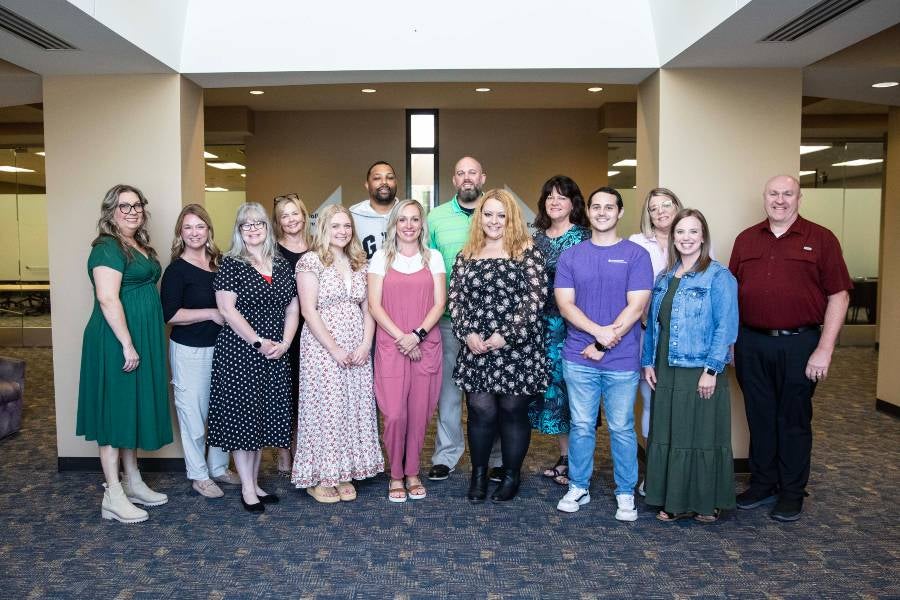
The first cohort of candidates from Lipscomb University’s IMPACT Initiative School Counseling Program will graduate this May, ready to step into critical roles as licensed school counselors in districts across Middle Tennessee. Their work will help address the increasing demand for student mental health support in local schools.
Launched in 2023, the IMPACT (Innovative Mental Health Partnership Accessing Counselor Training) Initiative offers full tuition support for candidates pursuing a Master of Education in School Counseling. The initiative aims to increase the number of licensed school counselors in high-need school districts across the region.
“This program is not only training outstanding school counselors but removing financial barriers that might have kept talented individuals from entering the profession,” said Lisa Davies, lead faculty for Lipscomb’s School Counseling Program and IMPACT Initiative director. “We’re still facing a shortage of licensed school counselors, and this program is helping fill that gap one graduate at a time.”
Meeting a critical need
According to the American School Counseling Association, the recommended student-to-counselor ratio is 250 to 1. Tennessee law, however, only requires one counselor per 500 students in grades K-6 and one per 350 students in grades 7-12—leaving schools under-resourced and students underserved.
With 21 graduates from the inaugural IMPACT cohort, this program is helping shift those numbers in a more hopeful direction. These candidates will begin school counseling positions this fall in districts in districts that have partnered with Lipscomb in this program, including Metropolitan Nashville Public Schools, Lebanon Special School District, Maury County Public Schools, Smith County Schools, Hickman County Schools, Rutherford County Schools and Macon County Schools.
Partner districts work closely with Lipscomb to identify local educators to participate in the program. Many candidates serve in job-embedded roles during their graduate studies, gaining real-time experience while applying their coursework in their home schools and districts.
“Our candidates are embedded in the very communities they serve. They know the students. They know the families. They are deeply committed to making a difference where it’s needed most,” said Davies. “This cohort has formed a strong bond. They support each other professionally and personally, and that network will strengthen their impact in the field.”
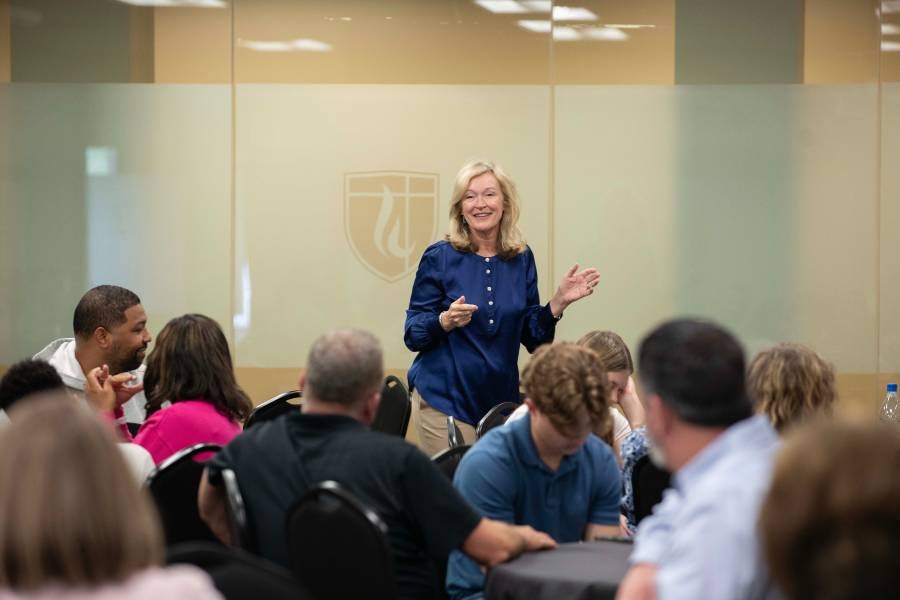
Lisa Davies, lead faculty for Lipscomb’s School Counseling Program and IMPACT Initiative director, talks with the program's first cohort to graduate.
A calling to serve students
Each member of this inaugural cohort brings a unique story and a shared commitment to serving students.
Shelby Hoover, a former middle grades teacher in Hickman County, said the IMPACT program opened a door she didn’t know existed.
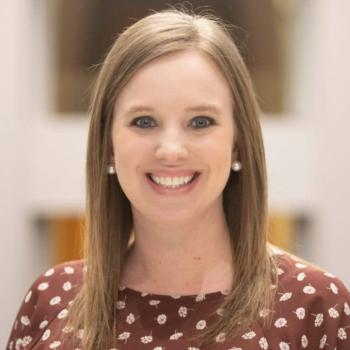
Shelby Hoover, Hickman County
“I was ready for a change but hadn’t considered school counseling until I learned about the grant,” said Hoover, who had been a classroom teacher for nine years prior to entering Lipscomb’s program. “Now I know I’ve found where I belong. This role allows me to support students not just academically, but emotionally … to help them be the best version of themselves.”
Hoover credits the IMPACT program with providing a pathway for finding this new pathway by eliminating the financial impact of pursuing a new role in education.
“I am forever grateful for the professors and staff at Lipscomb who have invested in helping me become a good school counselor. Their passion for the role of school counselor and those people in that role is evident,” said Hoover, who will be joining the Hickman County Middle School team as a school counselor this fall. “My professors created classrooms, in person and online, that were safe spaces to address fears and concerns, but also celebrate successes and each other as we began this role together. The cohort of students I have been through this program with have become my friends. We support each other both professionally and personally. I am grateful to carry those relationships with me long past graduation.”
Brianna Harrell of Rutherford County echoed that sentiment. “I’ve always felt called to support young people through their challenges,” she said. “The Lipscomb experience, from the professors to my peers, helped shape me into a more confident and empathetic counselor. I feel equipped with both knowledge and purpose.”
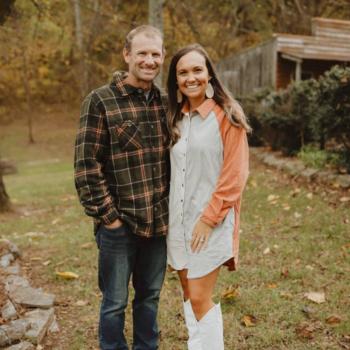
Brianna Harrell, Rutherford County
“I feel called to pursue a career in school counseling because I've always been passionate about supporting young people through the challenges they face, both academically and personally,” she said. “Growing up, I saw firsthand how a compassionate, attentive counselor could completely shift a student's path. That impact inspired me to be someone students can trust and turn to-not just for help with schoolwork or college applications, but for their mental and emotional well-being, too. Every kid needs someone in their corner and I want to be their encouragement.”
“School counselors are a vital part of any school because they serve as the bridge between students, families, teachers, and administrators. Counselors often notice issues others might overlook-anxiety, bullying, home struggles- and help create safe, supportive environments where students can succeed as their whole selves,” continued Harrell. “They're advocates, listeners, strategists, and caretakers. Without them, schools risk missing the heart of what education should be: helping every student feel seen, valued and prepared for life.”
Harrell said that her Lipscomb experience, from the professors to my peers, helped shape her into a more confident and empathetic counselor.
“Beyond academics, Lipscomb emphasized the importance of character, faith and service-values that are essential in my personal life and in school counseling,” shared Harrell. “I appreciate the professors who challenged me academically and spiritually to dig deep and rely on the strength that only comes from Jesus Christ. I'm leaving Lipscomb feeling equipped, not just with knowledge, but with a calling and the courage to step into it.”
For Kelsey Brumfield, who teaches in Metro Nashville Public Schools, a childhood experience with anxiety and a compassionate counselor inspired her path.
“in elementary school. I struggled with severe storm anxiety, but my school counselor would find ways to make me feel safe. She would allow me to come sit in her office and listen to a book when it was storming, and I will always remember that,” said Brumfield who graduated from Lipscomb in 2022 with her undergraduate degree in education. “I would love to be a safe place like that for my students. Also, my experience as a teacher has drawn me into the field even more. I love working with students, but I feel like I cannot meet their social-emotional needs from in the classroom because I am also trying to push them academically,” she continued. “As a school counselor I can be more focused on these needs. School counselors are vital to the functioning of a school because students cannot perform to their highest potential if their social-emotional needs are not met.”
Brumfield said the IMPACT grant helped her pursue a degree in school counseling as it allowed her to do so while keeping her job as a teacher, allowing her flexibility and financial resources. This August, Brumfield will be working at MNPS’s Una Elementary as a school counselor.
“My Lipscomb experience has been great. The program has prepared me for my next step as a school counselor through the internship hours and the course work. The variety of internship hours has helped me be prepared no matter where I land,” she explained. “I have done hours in high school, middle school, elementary school, urban schools, suburban schools and rural schools. The key assignments from each course are activities that I can take and implement into my school counseling program.”
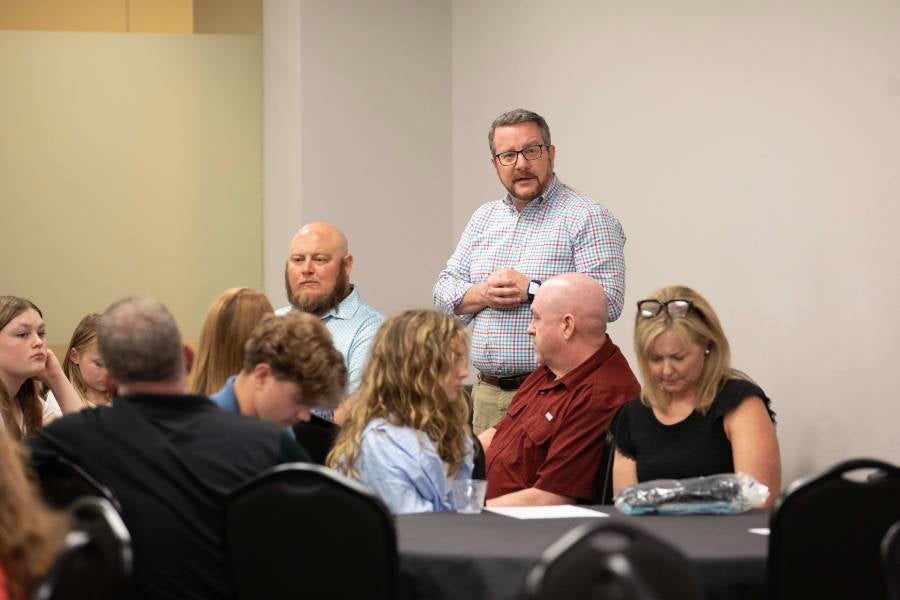
Partnering for progress
Lipscomb’s IMPACT Initiative is made possible through strong partnerships with local districts and organizations. In addition to public schools, candidates complete fieldwork with community partners like Persist Nashville and UrbanPromise Nashville, broadening their understanding of student needs in diverse settings.
“These partnerships give our candidates access to a wide range of experiences, from rural to urban schools, from elementary to high school settings,” said Davies. “It’s practical, hands-on training that prepares them for whatever setting they land in.”
That variety was a key strength for candidates like Christin Christman of Lebanon Special School District, who said she appreciated the range of placements and the support of the Lipscomb community. “The program has given me the tools I need to be a listening ear and a support system for my students,” she said. “It’s an honor to serve in this role.”
Other cohort members brought with them years of classroom experience, personal motivation and a heart for service:
- Joy Roberts, now at JE Moss Elementary, says the program has helped her grow personally and professionally, developing a deeper sense of purpose and empathy.
- Tia Medley, who transitioned from 13 years of teaching to counseling in Smith County, found that the program allowed her to pursue her calling without placing financial stress on her family.
- Cameron Canales, who teaches and coaches in Lebanon, said, “School counseling is something I’ve always felt passionate about. I’m honored to help students grow into well-rounded individuals.”
- Stefanie Sudut, a teacher at McGavock High School, brings a background in special education and a personal passion for advocacy, shaped in part by her experience parenting a child with non-verbal autism.
- Amanda Owen, of Winfree Bryant Middle School, describes her counseling career as divinely inspired, sparked by the mental health needs she observed after the pandemic.
- Tyler Brown, a graduation coach in Spring Hill, noted that his time at Lipscomb helped him build on relationships he had already formed with students. “Combining my experiences with what I’ve learned through this program will help me better support students’ mental health.”
- Tracey Housley Duez, a veteran educator at Riverdale High School, reflected, “Until students’ mental health needs are addressed, nothing else matters to them. This program has helped me understand how to truly support students in all areas of life.”
- Shelton Knox, a teacher at JFK Middle School, believes school counselors play a critical role in empowering students’ post-secondary success. “I’m proud to be part of this program and this university,” he said.
- Mystie Keller, a counselor at Spring Hill Middle School, credits Lipscomb’s program with equipping her to support students holistically: academically, socially, and emotionally.
“Every time a graduate steps into a school counseling role, that’s one more student who gets the support they need,” said Davies. “We’re proud of this first cohort and excited to see the legacy they will create — not just for Lipscomb, but for every student they’ll serve.”